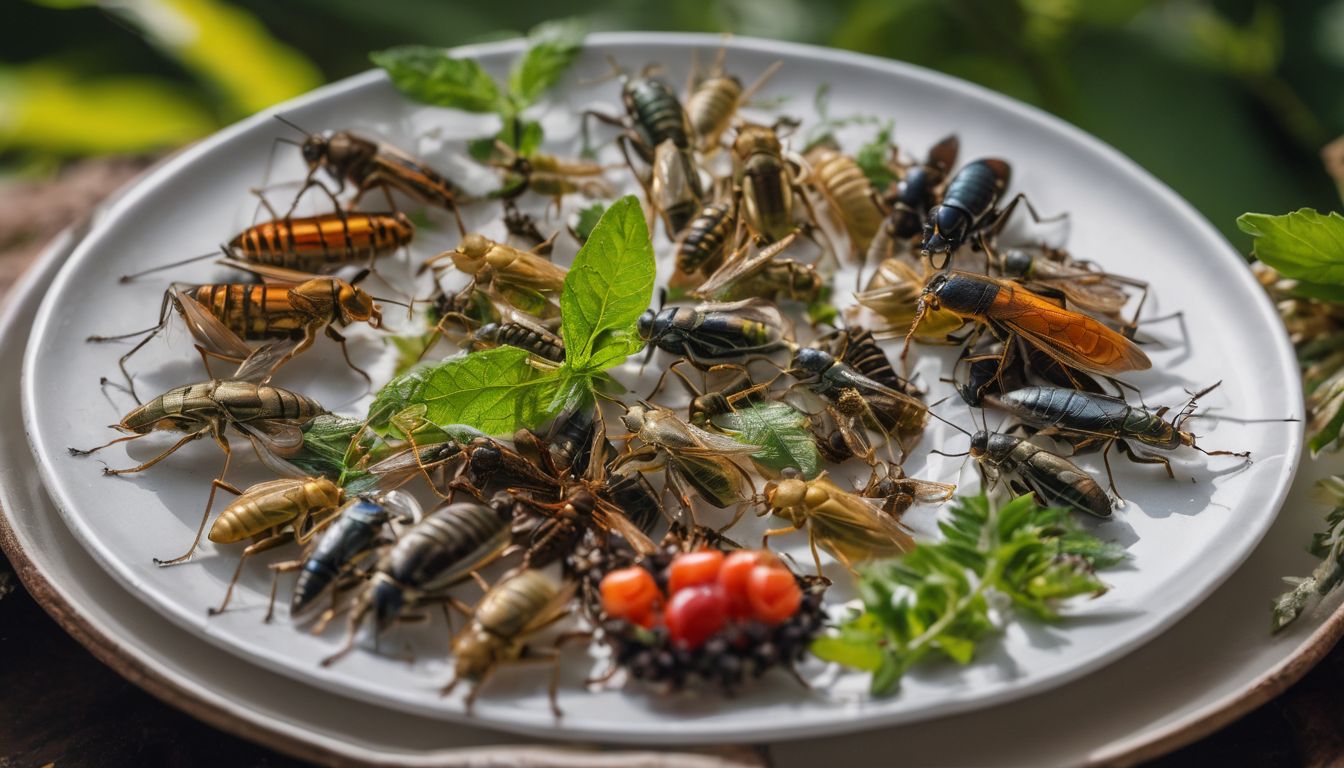Feeling tired and out of shape can really bring you down. A raw food diet could be the energiser your body needs, packed with nutrients just as nature intended. This post will delve into how switching to raw foods might just be the boost for better health you’ve been searching for.
Let’s discover a fresh way to eat!
What is a Raw Food Diet?
A raw food diet is a way of eating that focuses on consuming unprocessed and uncooked whole foods, such as fruits, vegetables, nuts, seeds, and grains. There are different types of raw food diets, including raw veganism and raw vegetarianism.
Definition
A raw food diet consists of unprocessed, organic, and often plant-based foods that are not heated above a certain temperature. Advocates believe this preserves the natural enzymes and nutrients found in foods.
Eating mainly fruits, vegetables, nuts, seeds and sprouted grains defines this dietary approach. It champions the theory that cooking can diminish vital health-promoting properties in our meals.
Enthusiasts enjoy fresh juices, smoothies, salads and dehydrated snacks without baking or frying any ingredients. They aim for a nutrient-dense intake through whole foods to increase energy levels and support overall well-being.
This lifestyle promotes clean eating by avoiding packaged and refined products thereby echoing an environmentally conscious mindset focused on conservation.
Types of Raw Food Diets
A raw food diet can take various forms, each with its unique characteristics. These types include:
- Raw Vegan Diet: This diet excludes all animal products and focuses on uncooked fruits, vegetables, nuts, seeds, and sprouted grains.
- Raw Vegetarian Diet: Similar to the raw vegan diet but may include raw dairy products like milk and cheese.
- Raw Omnivorous Diet: It allows for the consumption of raw animal products such as eggs, meat, and fish in addition to raw fruits and vegetables.
- Gourmet Raw Food Diet: This type involves more elaborate preparations of raw foods to mimic cooked dishes, using dehydration and blending techniques.
Benefits of a Raw Food Diet
A raw food diet can lead to increased nutrient intake as it focuses on whole, plant-based foods. It can also promote weight loss, improve heart health, and enhance digestion for overall well-being.
Increased nutrient intake
A raw food diet can increase nutrient intake as it focuses on whole, plant-based foods. This diet includes a variety of fruits, vegetables, nuts, and seeds which are rich in essential vitamins, minerals, and antioxidants.
These nutrient-dense foods provide the body with a wide array of essential nutrients for overall health.
Consuming an abundance of fruits and veggies in a raw food diet can lead to increased nutrient intake. This supports better energy levels, improved immune function, enhanced skin health, and overall well-being.
Weight loss
A raw food diet can contribute to weight loss due to its focus on nutrient-dense, low-calorie foods such as fruits, vegetables, and whole grains. These foods are rich in fiber and water content, promoting a feeling of fullness while consuming fewer calories.
As a result, adhering to a raw food diet can aid in achieving and maintaining a healthy weight. The emphasis on natural, unprocessed foods also eliminates many high-calorie and high-fat options commonly found in Western diets.
Additionally, the consumption of raw plant-based foods may lead to improved metabolism and increased energy expenditure. This is supported by research suggesting that plant-based diets are associated with lower body mass index (BMI) and reduced risk of obesity-related diseases such as type 2 diabetes.
Improved heart health
A raw food diet can contribute to improved heart health. By incorporating nutrient-dense fruits and vegetables, this diet may help lower the risk of heart disease. These plant-based foods are rich in antioxidants and fibre, which can support cardiovascular health by reducing inflammation and lowering cholesterol levels.
Furthermore, a raw food diet can also aid in maintaining a healthy weight, another factor that impacts heart health positively.
The emphasis on whole, unprocessed foods in a raw food diet promotes better blood pressure regulation and overall heart function. Consuming fewer saturated fats commonly found in processed foods can further benefit heart health.
Better digestion
A raw food diet is rich in fibre, which promotes healthy digestion. It aids in regular bowel movements and reduces the risk of constipation, improving overall gut health. The natural enzymes present in raw foods also support the digestive process, enhancing nutrient absorption and reducing bloating or discomfort.
By incorporating a variety of raw fruits, vegetables, nuts, and seeds into your diet, you can support your digestive system’s efficiency while reaping numerous other health benefits.
Risks of a Raw Food Diet
-Potential nutritional deficiencies, weakened muscles and bones, tooth decay, and reduced fertility. Learn more about the potential risks of a raw food diet and how to mitigate them by reading further.
Potential nutritional deficiencies
Following a raw food diet may lead to potential nutritional deficiencies, as certain nutrients like vitamin B12, iron, calcium, and omega-3 fatty acids are primarily found in animal products or require cooking for optimal absorption.
Without careful planning and variety in the diet, individuals may be at risk of inadequate intake of these essential nutrients. It’s important for those following a raw food diet to consider supplementation and include fortified foods such as plant-based milk alternatives or breakfast cereals to help meet their nutritional needs.
To prevent potential deficiencies whilst on a raw food diet, it is crucial to consume a wide range of nutrient-dense foods including leafy greens, nuts and seeds, legumes, and fruits.
Weakened muscles and bones
Moving on from the potential nutritional deficiencies associated with a raw food diet, it’s important to consider the impact on muscles and bones. Without adequate protein and certain nutrients found in cooked foods, weakened muscles and bones can become a concern for individuals following a strict raw food diet.
This can lead to decreased strength and increased susceptibility to fractures or other bone issues.
To ensure overall health, those considering or already following a raw food diet should pay close attention to their protein intake by incorporating sufficient plant-based sources such as legumes, nuts, seeds, and quinoa.
Tooth decay
A raw food diet, if not carefully planned, may lead to tooth decay. Consuming large amounts of acidic fruits and juices can erode tooth enamel over time. Plus, dried fruits and honey in the diet can stick to teeth and promote cavity formation.
It’s important to maintain good oral hygiene and visit the dentist regularly when following a raw food diet to prevent dental issues.
To avoid such problems, consider consuming fresh fruits and vegetables that are low in acidity while on a raw food diet. Additionally, be sure to drink plenty of water after consuming acidic foods to help neutralise acid levels in the mouth.
Reduced fertility
A raw food diet may lead to reduced fertility due to potential nutritional deficiencies. Nutrients such as iron, zinc, and vitamin B12 are essential for reproductive health, and insufficient intake of these nutrients from a raw food diet can impact fertility.
It is important for individuals considering a raw food diet to carefully plan their meals to ensure they are meeting their nutritional needs for optimal reproductive health.
Individuals interested in following a raw food diet should prioritise nutrient-dense foods that support overall health while also considering the potential impact on fertility. Planning meals that include a variety of fruits, vegetables, nuts, seeds, and sprouted grains can help maintain adequate nutrient levels necessary for reproductive wellness.
How to Follow a Raw Food Diet
To follow a raw food diet, focus on consuming whole, plant-based foods such as fruits, vegetables, nuts, seeds, and sprouted grains. Avoid processed and cooked foods to fully embrace the benefits of this nutrient-dense eating plan.
Foods to Avoid
To maintain a raw food diet, it’s important to avoid certain foods that don’t align with the principles of this lifestyle. This includes:
- Processed foods: These contain artificial additives and preservatives, which are not in line with the raw food philosophy.
- Refined sugar and flour: These heavily processed ingredients are stripped of their natural nutrients, contradicting the essence of a nutrient-dense raw food diet.
- Dairy products: Milk, cheese, and yogurt are avoided on a raw food diet due to their processing and potential health concerns.
- Cooked grains and legumes: These are off-limits as they have undergone heating processes, altering their composition from its natural state.
- Unhealthy fats: Oils such as vegetable oil or margarine should be limited or excluded since they can counteract the benefits of a plant-based diet.
Sample Menu
Transitioning from the foods to avoid, let’s take a look at a sample menu for a raw food diet. Here are some nutrient-dense and delicious options:
- Breakfast:
- Fresh fruit salad with mixed berries, nuts, and seeds
- Green smoothie with spinach, kale, and banana
- Snack:
- Raw carrots and cucumber sticks with homemade hummus
- Lunch:
- Zucchini noodles with marinara sauce and cherry tomatoes
- Mixed green salad with avocado, sprouts, and a lemon-tahini dressing
- Snack:
- Sliced apples with almond butter
- Dinner:
- Raw sushi rolls filled with vegetables and avocado
- Cucumber gazpacho soup
- Dessert:
- Chia seed pudding with coconut milk and fresh mango slices
Conclusion
Focus on whole, plant-based foods like fruits, vegetables, nuts, and seeds to reap the benefits of a raw food diet for overall health. If you want to learn more about how a raw food diet can improve your well-being, keep reading!
Focus on whole, plant-based foods for overall health.
Choose nutrient-dense, whole plant-based foods for optimal health and vitality. Incorporate a variety of fruits, vegetables, whole grains, nuts, seeds, and legumes into your diet to ensure you receive essential vitamins and minerals that support overall well-being.
Embrace a plant-based approach to eating as it not only benefits personal health but also positively impacts environmental conservation efforts. By focussing on plant-based foods, individuals can contribute to sustainable living while taking care of their own bodies.





